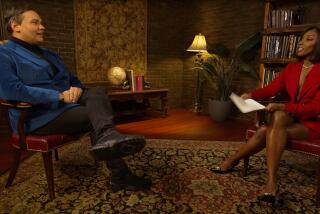When a Private Citizen Becomes a Public Figure
- Share via
Re “A Friendship Takes Political Toll on D.A,” March 12:
Obviously, being the fifth son of Patrick Di Carlo, I did not particularly care for this article. But I am ever cognizant of our sacred 1st Amendment right to free speech and cannot, in good conscience, hold any grudge against Stuart Pfeifer for exercising his right as a journalist.
What has become almost unbearable, however, is how Pfeifer and The Times constantly strive to portray my father in a light most unconducive of the man I have loved for 38 years and have worked with for 12.
I queried Pfeifer as to the validity of his position that my father’s story was of public value if it could be proved that district attorney investigator Lyle Wilson’s concerns that have been reported in this and many other papers were unfounded.
I then attempted to demonstrate that the very issue of Wilson’s concerns stemmed from extortive threats received by my father in regard to a publicly listed company known as New Cinema Partners Inc. It has been previously reported by your paper that my father went to the district attorney’s office seeking assistance with this threat. The ultimate outcome was the now-infamous interview with Wilson.
Wilson stated something to the effect that his suspicions were piqued as to my father’s involvement with New Cinema Partners.
In short, my father sought to report a threat and Wilson perceived him to be the target. The rest of the story has been printed here relative to the district attorney allegedly thwarting Wilson’s investigation.
What Pfeifer did not state in his article was the fact that I personally offered to him, among other information, notebooks containing all public disclosures surrounding the New Cinema Partners deal. I implored him to read the information to independently verify that my father had no involvement with the company until the debacle surrounding its stock value plunge was over. He did not take the information offered.
My question is simple: If the basic element that elevates a private citizen to public-figure status is unfounded from its inception and the paper publishes this basic element while in possession of evidence to the contrary, what rights do other private citizens have, should by luck they happened to be seen in the proximity of the district attorney and the likes of a Lyle Wilson deems it inappropriate?
I have no grudges against Pfeifer, the grand jury or the state attorney general. I am just amazed how those cloaked with the privilege of the 1st Amendment and enforcement powers do not attempt to research the very essence of this now-public issue to find that nothing was amiss and a private individual has now suffered as a result of others’ quests to write articles or political agendas.
Patrick Di Carlo Jr.
Orange


